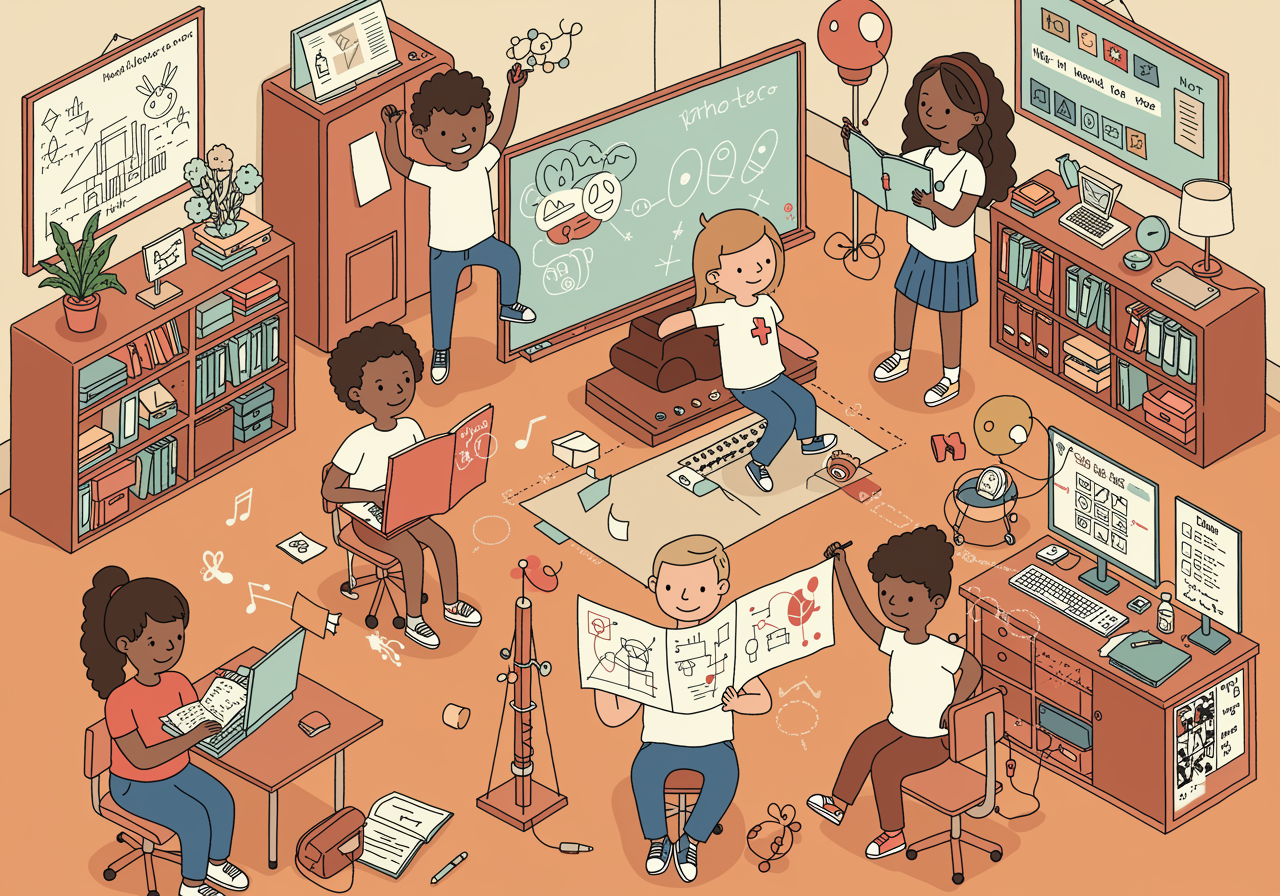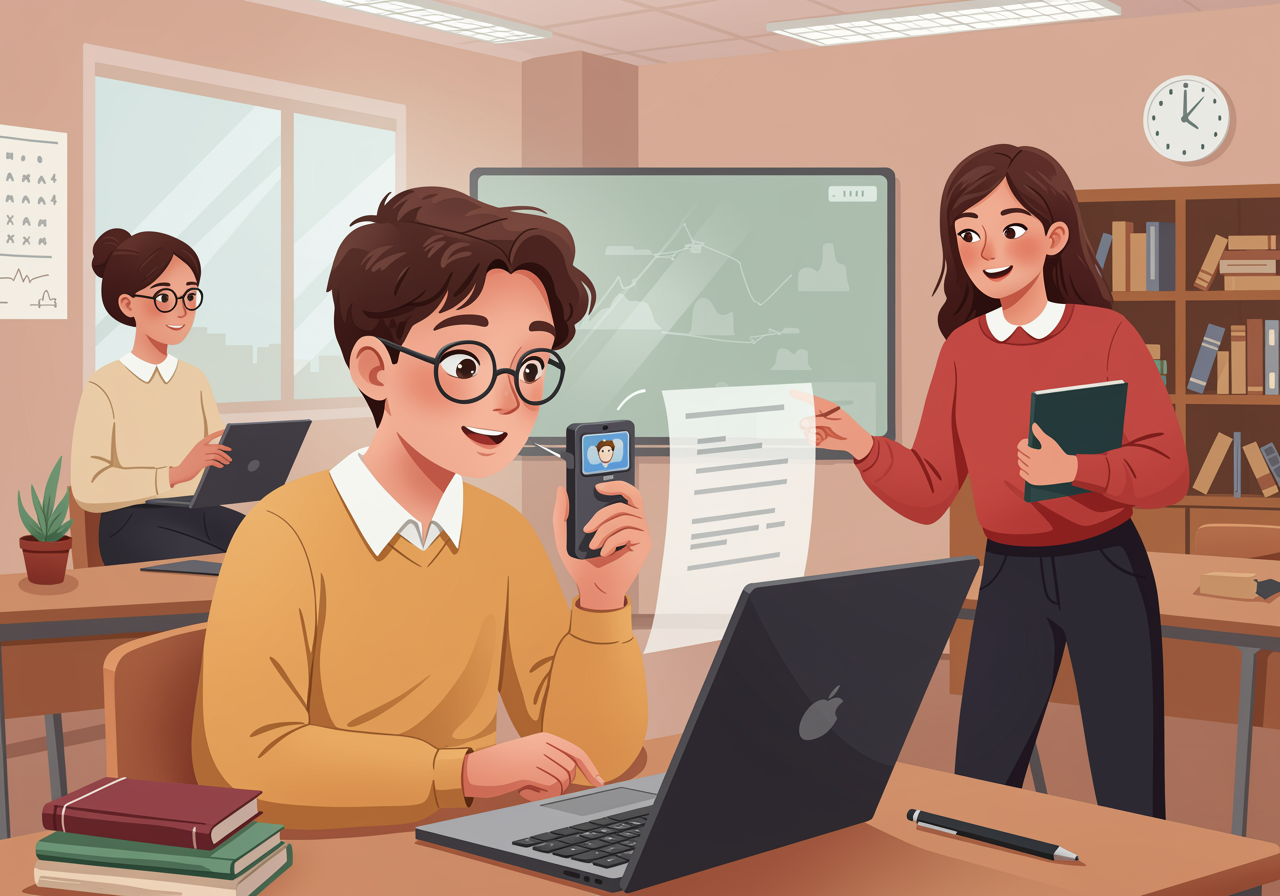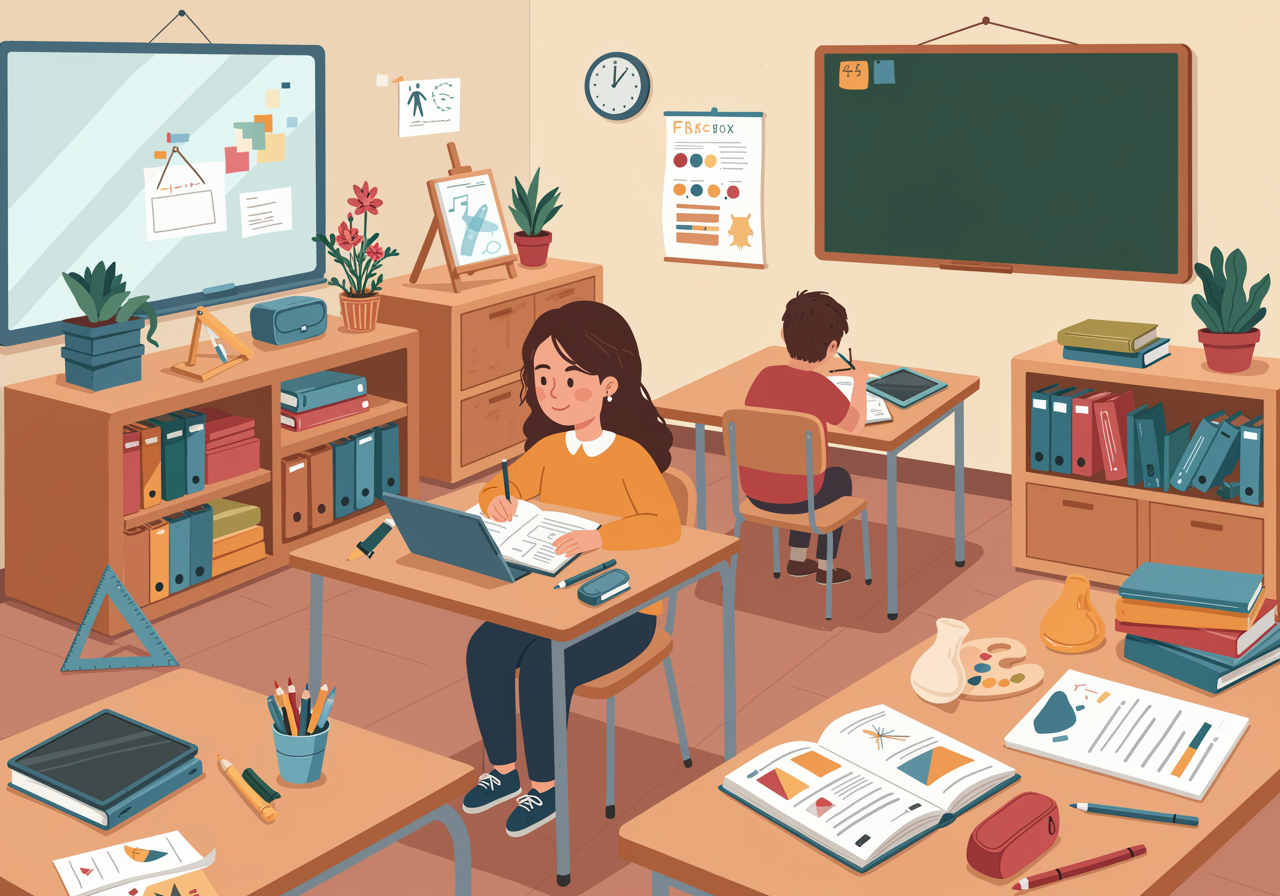Hidden Superpowers: How New Teaching Methods Are Unlocking Amazing Talents
Every student has incredible abilities waiting to be discovered!
Discover how cool new teaching strategies are helping students with learning differences find their unique superpowers and shine like never before.
Overview
Think about this: what if the kid who struggles with reading could be the next great filmmaker? Or the student who has trouble sitting still could become an amazing athlete or inventor? New teaching methods in special education are like having superpowered detective tools that help teachers discover what makes each student absolutely brilliant. Instead of focusing on what's hard for students, these strategies shine a spotlight on what they're naturally awesome at – and the results are mind-blowing!

Understand in 30 Seconds
Get up to speed quickly
- Every Brain is Different: Just like fingerprints, every person's brain works in its own unique way. Some people are visual learners, others learn by moving, and some need to hear things to understand them best.
- New Tools, Amazing Results: Teachers now have high-tech tools like apps, virtual reality, and adaptive technology that can match how each student's brain loves to learn.
- Strengths-Based Learning: Instead of just fixing weaknesses, new strategies focus on building up what students are already good at to help them succeed in everything else.
- Real Success Stories: Students who once struggled are now becoming artists, engineers, entrepreneurs, and leaders because someone found their hidden talents.
Real Life Scenario
Situations you can relate to
Imagine Alex, a 13-year-old who has dyslexia and finds reading really challenging. In the old days, Alex might have felt stuck or frustrated. But now, Alex's teacher uses a cool speech-to-text program and graphic organizers that turn ideas into colorful mind maps. Suddenly, Alex discovers they're incredible at creating stories and solving complex problems – they just needed a different way to show it! Alex goes from feeling 'behind' to leading the class in creative projects. What if we told you there are thousands of students like Alex finding their superpowers right now? What hidden talents do you think you might have that no one has discovered yet?

Role Play
Spark a conversation with “what if” scenarios
What if you could design a classroom for students who learn differently?
- Role play: Take turns describing your dream learning space. Would you have standing desks? Quiet pods? Art supplies everywhere? VR headsets? Discuss how different setups might help different types of learners shine.
What if you were a 'talent detective' at your school?
- Role play: Practice identifying hidden strengths in everyday situations. One person acts out struggling with something while the other plays detective to find what they're really good at.
What if technology could read your mind to help you learn?
- Role play: Brainstorm wild (but possible) future learning tools together. Maybe glasses that translate words to pictures, or desks that sense when you're frustrated and play calming music?
FAQs
Frequently asked questions people want to know
What exactly is special education?
Special education provides extra support and different teaching methods for students who learn differently, whether they have disabilities, learning challenges, or just need a unique approach to succeed.
How do teachers figure out what talents students have?
Teachers use observation, different types of assessments, technology tools, and by trying various learning approaches to see what clicks for each student.
Can students in special education become successful in regular careers?
Absolutely! Many successful entrepreneurs, artists, scientists, and leaders have learning differences. Companies like Microsoft and Google actively recruit people who think differently because they bring unique problem-solving skills.
Examples in the Wild
See how this works day to day
- Temple Grandin, who has autism, became a world-renowned animal scientist and inventor. Her different way of thinking helped her design more humane livestock facilities. (National Geographic Society)
- Richard Branson, founder of Virgin Group, has dyslexia and credits his learning difference for his creative business approach and success. (Harvard Business Review)
- Students at the Carroll School in Massachusetts use iPads and specialized apps to turn their dyslexia challenges into strengths, with many going on to top colleges. (Understood.org)
- The nonprofit Exceptional Minds trains young adults with autism for careers in animation and visual effects, with graduates working at major studios like Pixar and DreamWorks. (CNN Business)
In Summary
What you should know before you start
- Every student has unique talents that can be discovered with the right teaching approach and tools
- New technology and teaching methods focus on strengths rather than just fixing weaknesses
- Students with learning differences often become innovative leaders because they think creatively
- The key is matching learning styles with teaching methods to unlock each person's potential
Pro-tip for Parents
You got this!
If your teen seems interested in this topic, resist the urge to immediately relate it to their own school struggles or successes. Instead, keep the conversation focused on the cool discovery aspect – like being talent detectives together. Ask questions like 'What do you think your learning superpower is?' or 'How do you think schools could be designed better?' This keeps things positive and exploratory rather than evaluative.

Keep an Eye Out For
Find these examples in everyday life
- News stories about innovative schools or teaching methods that help diverse learners
- Technology announcements about new learning apps or adaptive tools for students
- Success stories of people with learning differences who become entrepreneurs, artists, or leaders
Explore Beyond
Look up these related research topics
- How different types of intelligence (musical, artistic, athletic, etc.) are all equally valuable
- The science behind how our brains learn and why everyone's is different
- Famous inventors and creators who thought differently and changed the world